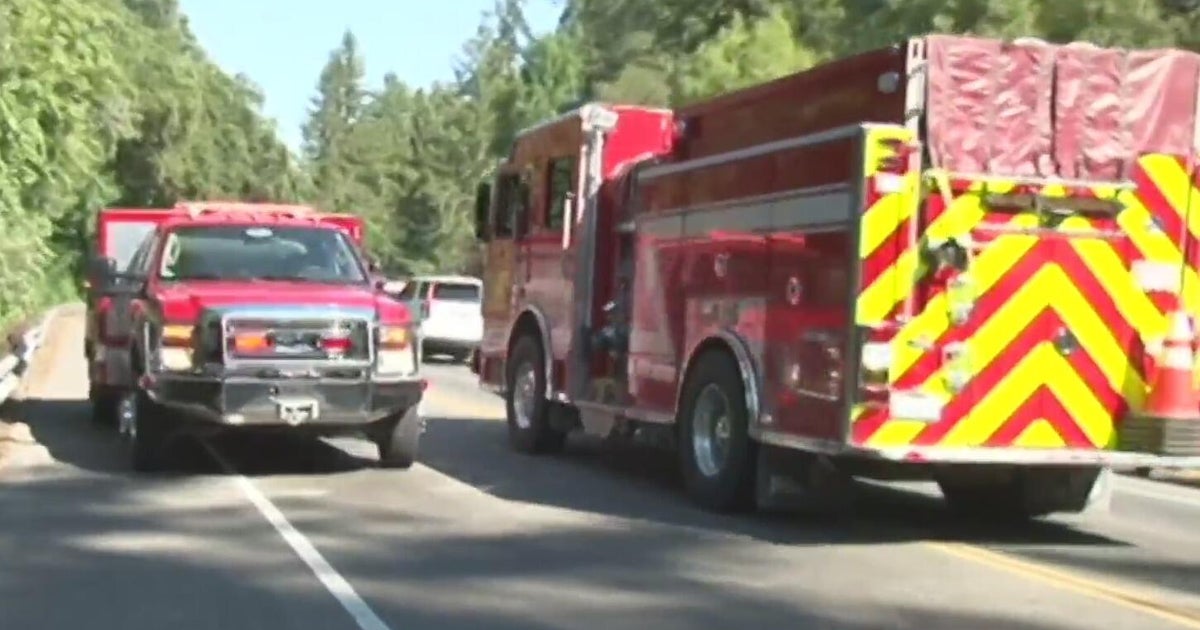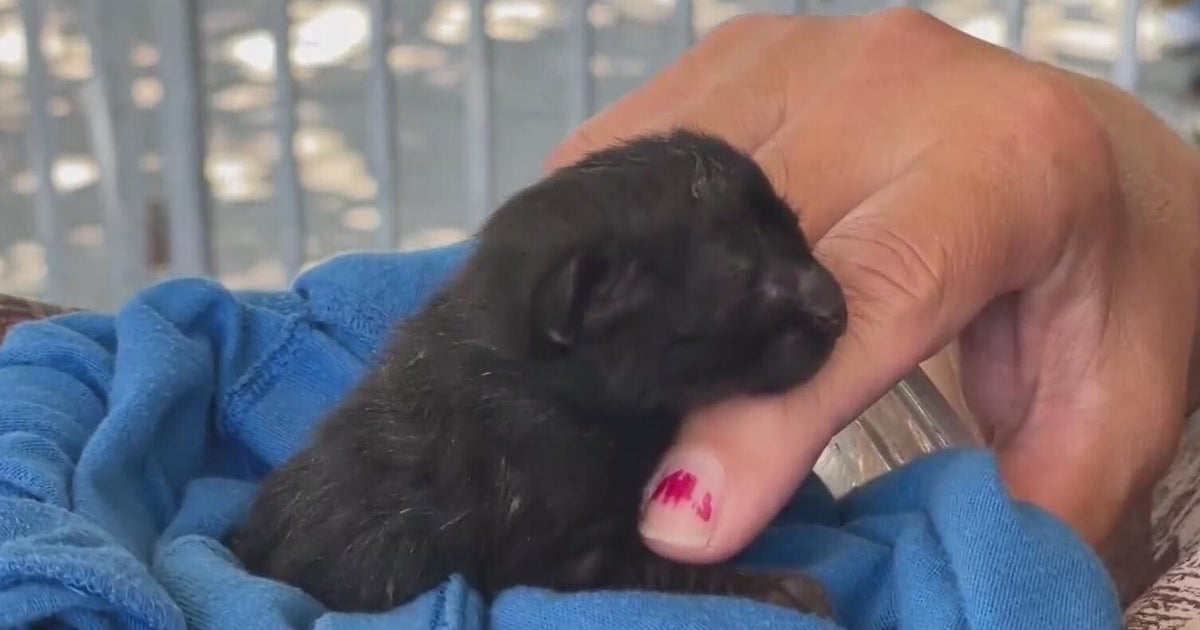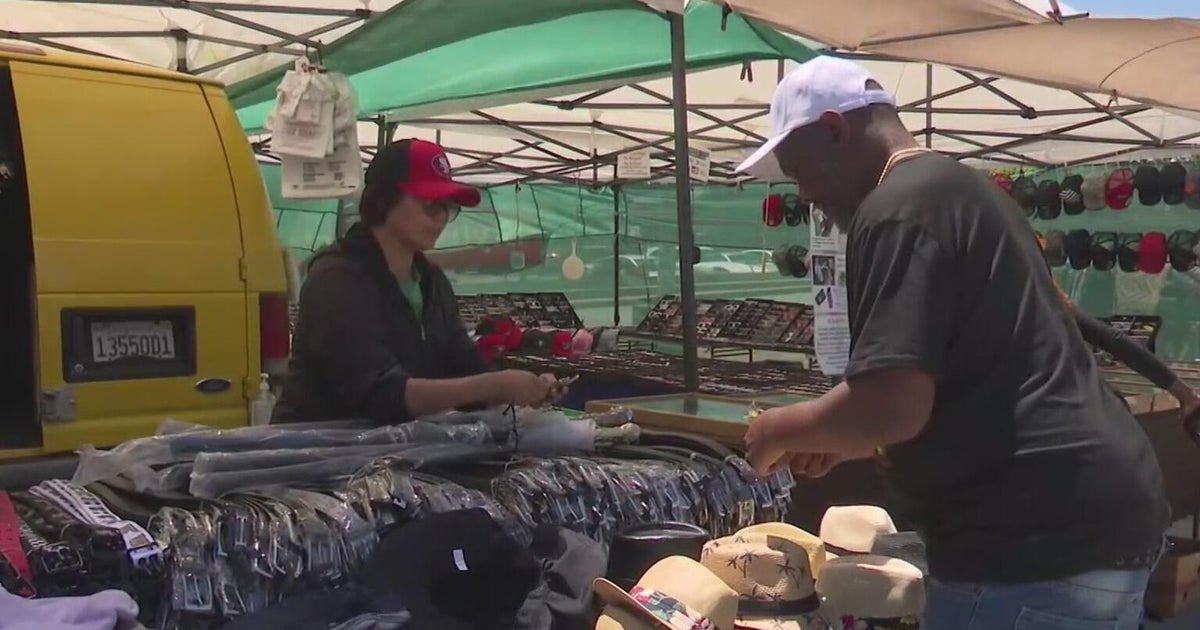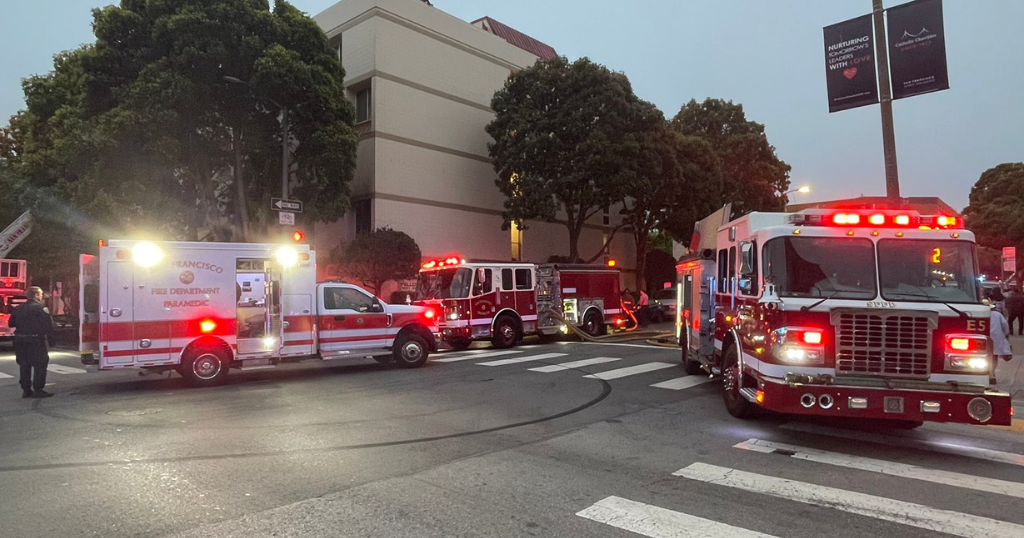Pride 2020 Sees Increasing Parallels, Connection Between LGBTQ And Black Lives Matter
by Molly McCrea and Kiet Do
SAN FRANCISCO (KPIX) -- Pride 2020 is taking place as many are marching in the street demanding justice for Black lives. For some who are both Black and LGBTQ, these two movements intersect and take on an extraordinary significance.
To gain understanding and perspective, KPIX 5 News spoke to three African Americans from the LGBTQ community: Jewelle Gomez is an award-winning author, Joe Hawkins heads up Oakland's 1st and only LGBTQ community center, and Quijai Johnson is a community activist, who recently graduated from UC Berkeley with a double major in molecular & cell biology and genetics.
We asked each one about the connection between Black Lives Matter and Pride.
"There's an absolute connection between Black Lives Matter and Pride because we are 'each other's.' There is no separation between who we are because what affects one affects the other," noted Gomez.
"There is an intersection in my mind between BLM and the Black LGBTQ community," said Hawkins. But he adds, there are also intense pressures from what he calls the two columns.
"So, as a black gay man - as a black queer person - we are sort of wedged between two columns: one is black homophobia, and the other is white LGBTQ and white mainstream racism," explained Hawkins who is also co-founder of Oakland Pride.
Quijai Johnson explained how sometimes black LGBTQ women feel a different kind of oppression, at times from within the Black community. She told KPIX 5 that Black women, especially those who are LGBTQ, are at times not protected.
"We can't just be, 'Oh "Black Lives Matter' but 'Oh wait, not the trans! Not the queers!' It doesn't work like that," said Johnson. "It's hypocritical because you're mad at people saying 'All Lives Matter,' you're mad at people saying 'Blue Lives Matter.' But you're mad because people are saying 'Trans Lives Matter?' No. You can't pick and choose what Black lives matter. It's hypocritical."
Johnson noted that so far in 2020, 14 transgender individuals have been violently killed. Most of them are Black trans women.
For Gomez, Hawkins, and Johnson, they told KPIX 5 that being Black and queer can be complex and, at times, challenging.
"When I get stopped by the police, they don't ask me if I'm LBGTQ. I'm a black man, okay?" said Hawkins.
Johnson explained how difficult it is to occupy so many different spaces: Black, queer, and female. She told KPIX 5 about the microaggressions she experiences. She noted, though, how she knew them when she felt them
"I'm Black and I'm queer. I'm gay, I'm lesbian, I'm all of those things. But when it's a specific person, when it's coming out of hatred, you feel it," said the 23-year-old.
Imagine having to face racism, homophobia, transphobia, and sexism served up all at once.
"Living and surviving with all the "isms" that get thrown at you by the dominant culture can be both heartbreaking and simple at the same time," recounted Gomez.
Johnson hopes for a future where she and other Black women, other Black queer women are protected from harm.
It's really sad to know that I'm fighting for people who might literally kill me," said Johnson.
The threats posed to the LGBTQ community of color is extensive. Members are at a higher risk of chronic health problems, financial insecurity and premature death.
"In the white community, HIV is something they feel like they've gained control of, they're taking a pill to be ok, But that's not the case in the Black LGBTQ community," said Hawkins. "We have higher rates of suicide, higher rates of youth homelessness, and higher rates of homelessness in general."
Little credit is given to the important work done by the LGBTQ people of color who sparked the modern-day Pride movement.
In 1969, the Stonewall riots in New York's Greenwich Village was a major catalyst for the movement. Activists like Marsha P. Johnson and Sylvia Rivera -both trans women of color – were the first to stand up and resist at the now-famous bar.
Three years before Stonewall, there was the first historic act of LGBTQ resistance in San Francisco. The event occurred in 1966 at Gene Compton's Cafeteria which is located in the Tenderloin District.
"Some cop came into Compton's Cafeteria and basically started harassing one of the queens that were there, one of the trans women," said Honey Mahogany, founder of Compton's Transgender Cultural District
Compton's Cafeteria was a safe haven for trans women, many of color who were not welcome in the white gay bars. These women were often harassed by the police. And this night was no different, except for one detail. The trans woman fought back.
"She ended up throwing a coffee in his face, and that started a three- or four-day riot that took to the streets and took up a large part of the Tenderloin," recounted Mahogany.
As seen in several recent marches, the LGBTQ and BLM movements have joined forces. Gomez, Johnson, and Hawkins said allies are needed and welcomed, but with a caveat.
"You need to learn cultural humility so that we can go into spaces that aren't necessarily our own," counseled Gomez.
"I know what it's like to have a white employee who has never had a black supervisor and to tell that white employee, give them an instruction and then second-guess me," explained Hawkins. "They're, like, 'Are you sure?' And I'm, like, 'I'm very sure.'"
Whether silenced, hidden, or censored, the Black queer movement doesn't want to lose momentum in this latest incarnation in the fight for civil rights, equality, and freedom.
Johnson is particularly concerned about Black women and their safety. She fears that they are at the bottom of the list and will be the last ones liberated.
"Because we are literally the flowers that don't get water, and that's not fair," she remarked. Johnson is a survivor. She told KPIX 5 how she navigated herself through the foster care system, got a double sciences major at the University of California, Berkeley and is planning on being a pediatrician.
Johnson said she did not want to exist as "Black" in one space or "queer" in one space.
"We just want to feel safe. We just want to be able to exist. That's the fight that we're all fighting," she said.



